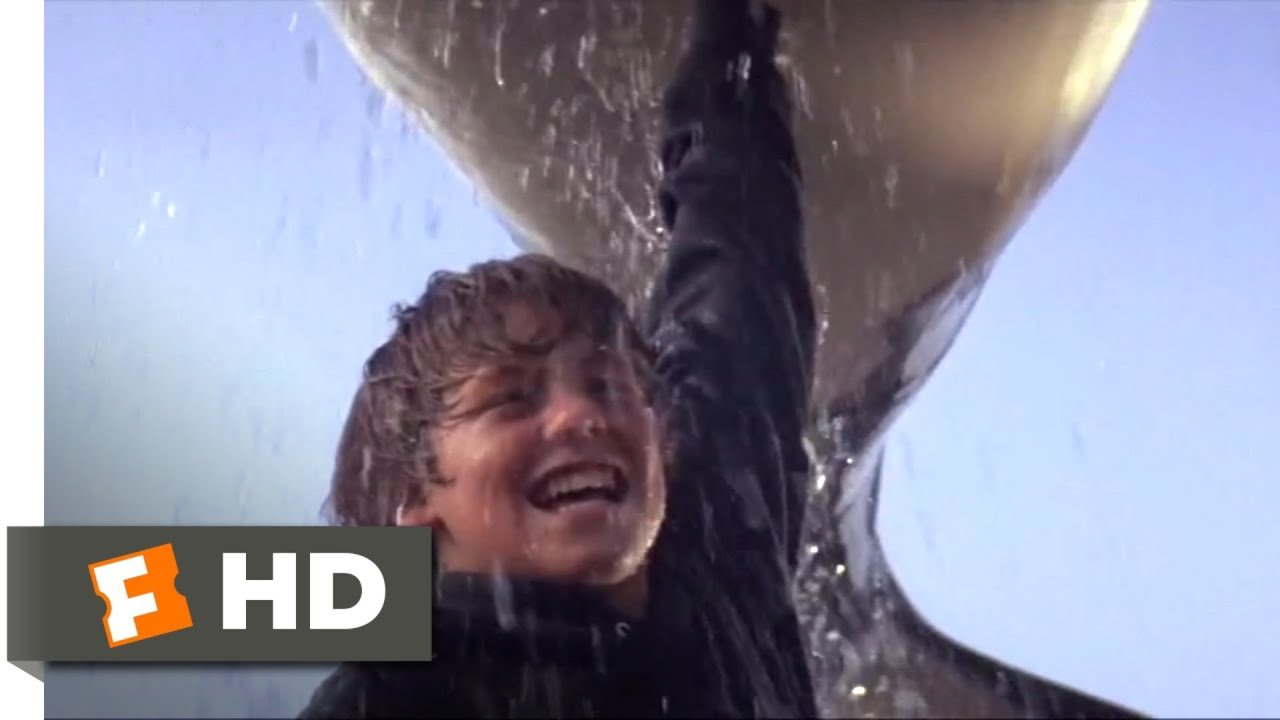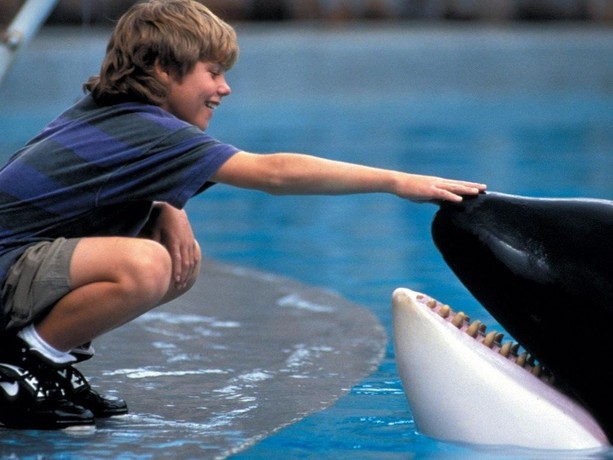Free Willy (1993)

Simon Wincer’s “Free Willy,” released in 1993, remains a beloved family film that resonates with audiences for its heartwarming story, powerful themes, and memorable performances. At its core, the film is a poignant exploration of the bond between a young boy and a captive killer whale, as well as a stirring call for compassion and environmental stewardship.
The narrative centers around Jesse, a troubled 12-year-old boy portrayed by Jason James Richter, who finds himself in foster care after a series of minor offenses. Jesse, who struggles with feelings of abandonment and anger, is assigned to work at a run-down aquatic amusement park. It is here that he encounters Willy, a magnificent orca whale held in captivity and forced to perform for the park’s visitors.
The relationship between Jesse and Willy forms the emotional core of the film. Initially wary of each other, Jesse and Willy gradually develop a deep bond built on mutual trust and understanding. Through their interactions, the film explores themes of empathy, redemption, and the transformative power of compassion.
Central to “Free Willy” is its critique of the captivity of wild animals for entertainment purposes. The film portrays Willy as a sentient being deserving of freedom and respect, rather than as a mere spectacle for human amusement. Jesse becomes increasingly determined to set Willy free, believing that the whale deserves a chance to return to the ocean and live in its natural habitat.
The climactic scene, where Jesse orchestrates a daring plan to release Willy back into the wild, is both exhilarating and emotionally resonant. Against the backdrop of sweeping coastal landscapes, Jesse and Willy’s bond is tested as they confront numerous challenges in their quest for freedom. The film’s portrayal of Willy’s liberation serves as a powerful metaphor for overcoming adversity and finding one’s true place in the world.

“Free Willy” also addresses broader themes of family and belonging. Jesse’s relationship with his foster parents, portrayed by Michael Madsen and Jayne Atkinson, evolves throughout the film as they provide him with guidance and support. The film highlights the importance of unconditional love and acceptance in nurturing personal growth and healing emotional wounds.
The performances in “Free Willy” are a testament to its enduring appeal. Jason James Richter delivers a compelling portrayal of Jesse, capturing both the character’s defiance and vulnerability with authenticity. The chemistry between Richter and Keiko, the orca whale who played Willy, imbues their scenes together with a palpable sense of connection and emotional depth.

In addition to its compelling narrative and heartfelt performances, “Free Willy” is also remembered for its evocative soundtrack. The song “Will You Be There,” performed by Michael Jackson, became synonymous with the film and underscored its themes of friendship and perseverance.
In conclusion, “Free Willy” stands as a timeless classic that continues to captivate audiences of all ages with its uplifting message and universal themes. Simon Wincer’s sensitive direction, coupled with strong performances and a resonant script, has ensured that the film remains a cherished part of cinematic history. Through its celebration of friendship, freedom, and the indomitable human spirit, “Free Willy” inspires viewers to advocate for compassion towards animals and stewardship of the natural world.











